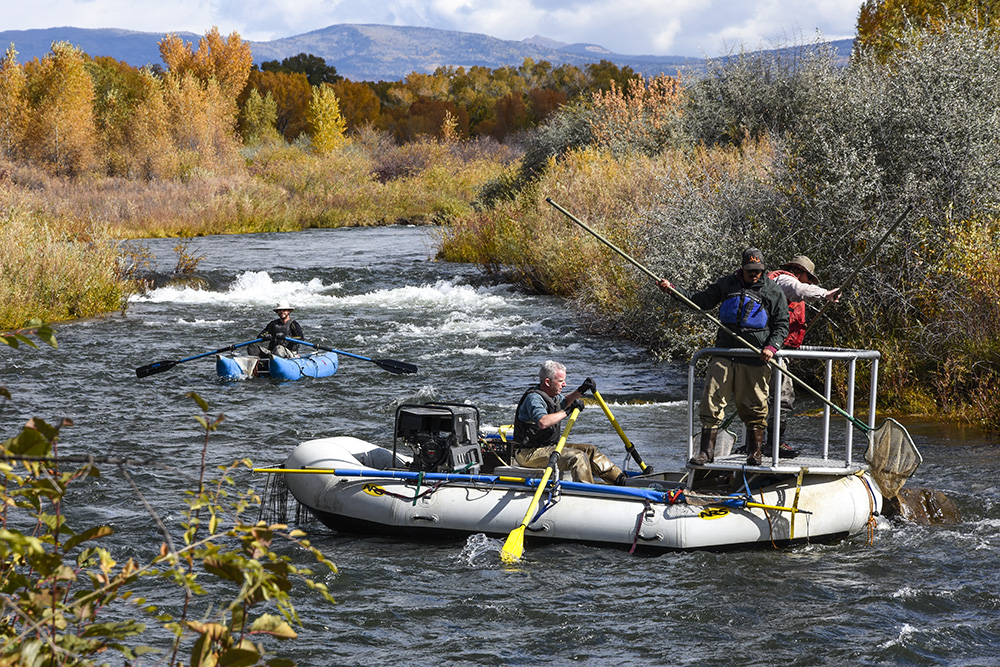The Southern Ute Indian Tribe will soon join 75 other tribes in administering water quality programs under the federal Clean Water Act. The tribe is at the tail end of the federal process to gain administrative authority over water quality standards and water quality certification programs for all its currently held trust lands previously overseen by state and federal authorities.
The authority to administer these programs is explicitly known as treatment in a similar manner as a state (TAS) for purposes of the Clean Water Act Section 303(c) Water Quality Standards and Section 401 Certification programs. Before receiving TAS authorization, a tribe must apply and be approved by the U.S. Environmental Protection Agency.
The Southern Ute Indian Tribe has been working toward developing standards to protect surface water quality since the 1990s, says spokesperson Lindsay Box, but began the TAS process more than four years ago. “Development of these standards is a means of exercising tribal sovereignty and protects the tribe’s water resources from pollution, protects tribal member health and welfare, and protects wildlife and aquatic species,” Box says. The tribe’s water quality program is the most robust in the region, she says.
In March 2018, EPA approved the tribe’s application. Since, the Southern Ute Indian Tribe created the necessary water quality standards and procedures, issued a public notice, and gained public input. As of February 2022, the tribe’s water quality standards were approved by Tribal Council. Next up, EPA will step in again to approve or disapprove the standards—the tribe is hoping for full approval in April 2022.
The Ute Mountain Ute Tribe completed this process nearly two decades ago. They started in 2000, and received approval in 2005. The tribe conducts triennial reviews of its water quality standards to ensure federal compliance and assess whether tribal goals were met. The Clean Water Act requires states and authorized tribes to periodically review programs and update as necessary, according to new water quality standards. States and authorized tribes send reviews to the EPA for review, approval or disapproval.
Consolidating water quality under a single jurisdiction was the goal for the Ute Mountain Ute Tribe in 2000. The Ute Mountain Ute Tribe’s lands lie in parts of three states: Colorado, New Mexico, and Utah. The tribe’s land in Colorado is trust land. The tribe’s land in Utah is allotment land held in trust—either in family trusts or by the tribe. Any fee land that a tribe owns is under the jurisdiction of the respective state. Without the tribe’s initiative to gain TAS approval, three different states would regulate the water quality for the Ute Mountain Ute Tribe.
The tribe’s ability to regulate its environment and exercise its sovereignty is what matters, says Ute Mountain Ute Environmental Program Director Scott Clow. When tribes can control their resources, it enhances tribal sovereignty, he says, noting that tribes prefer the language “Treatment as a Sovereign,” rather than the existing language.
Clow notes that tribes could adopt stringent standards beyond the federal government’s minimal standards, just as states can. For instance, the Ute Mountain Ute Tribe created a unique “Tribal Use Standard,” setting stringent goals for pristine water for ceremonial use.
“Tribes know what’s best for their water, lands and air,” says Clow.
Rachelle Todea is Diné and a citizen of the Navajo Nation. She is a freelance reporter based in Westminster, Colo., who reports on climate change and Indigenous peoples.


 Print
Print